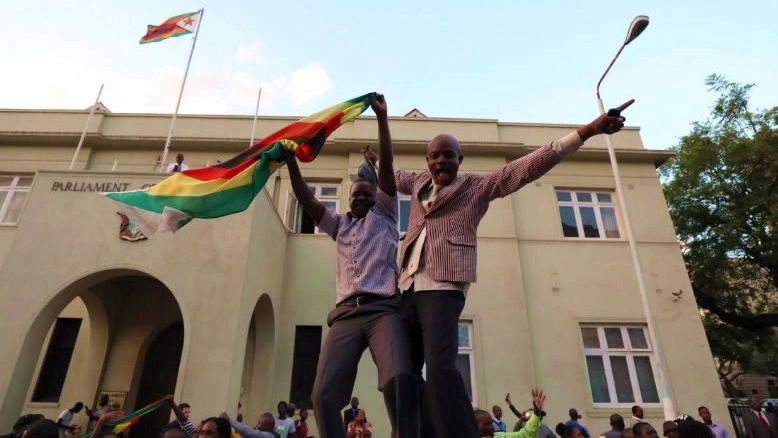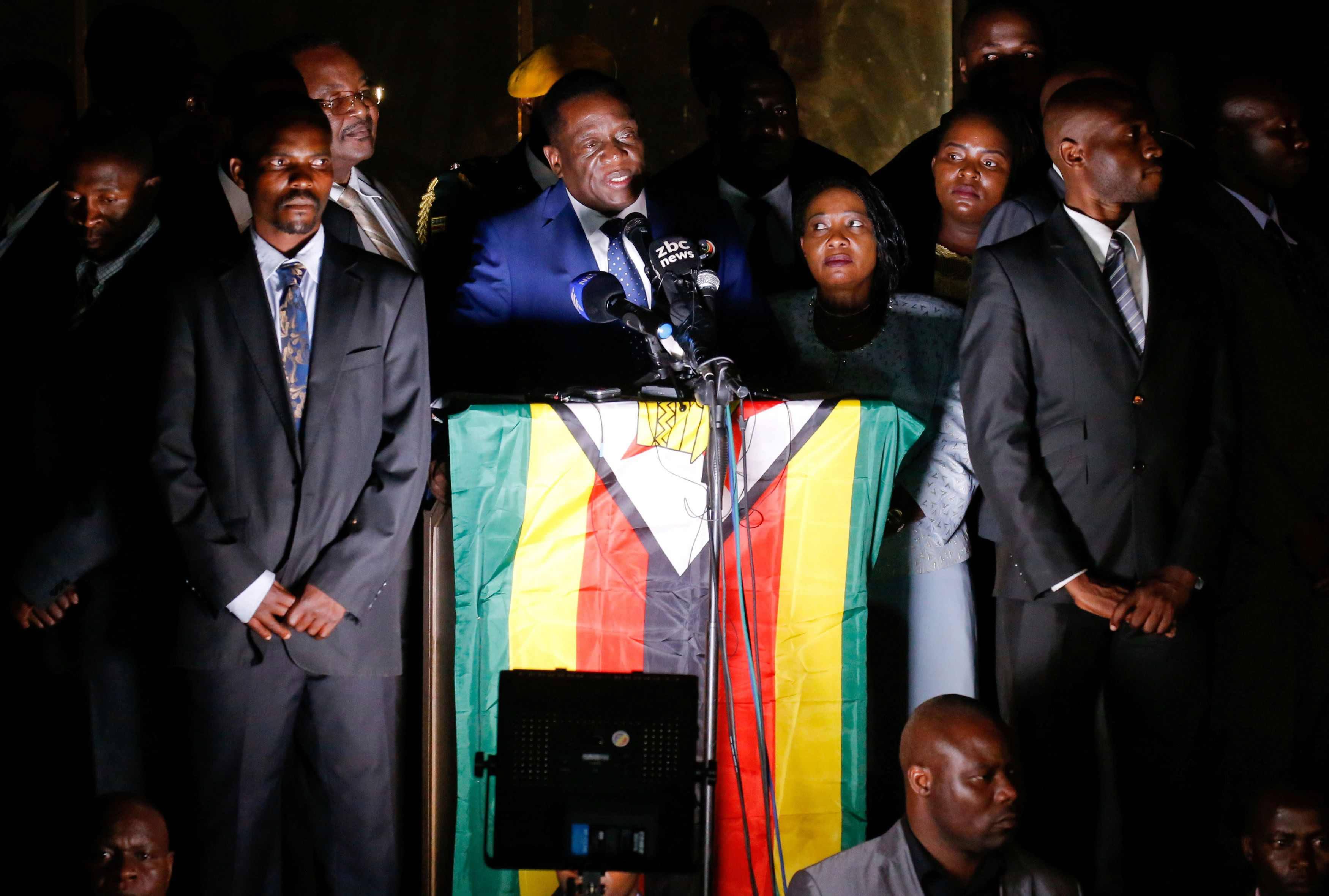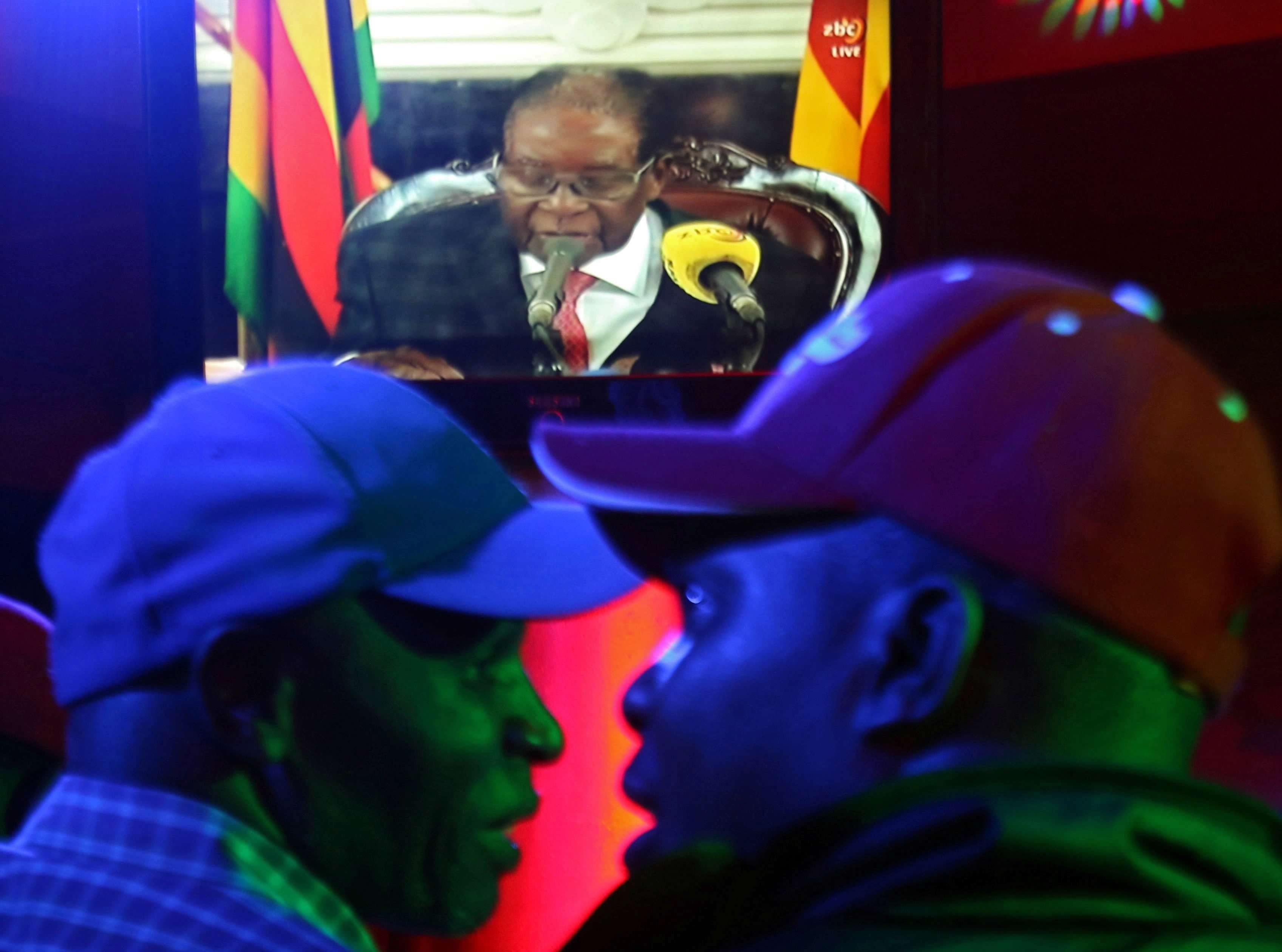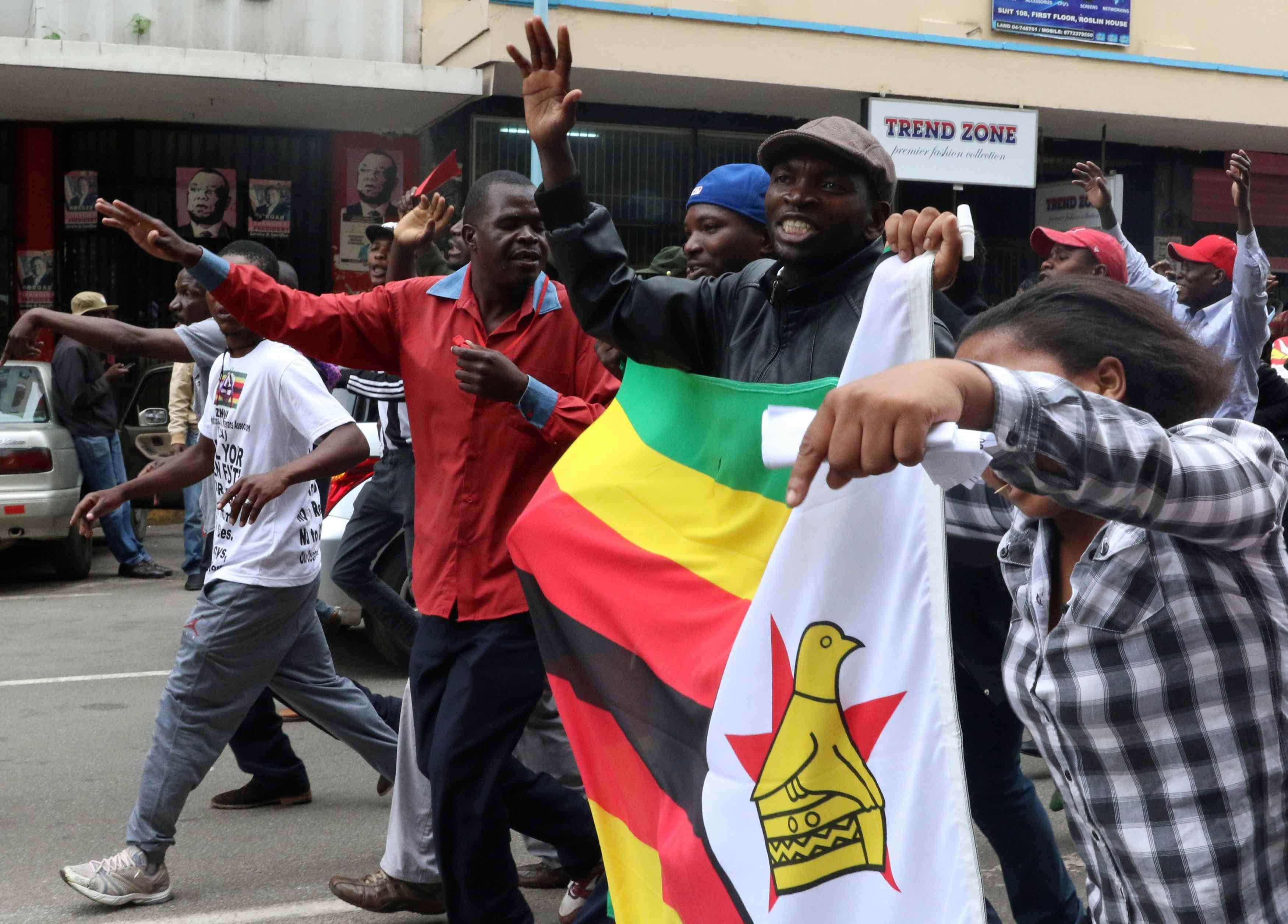
Opinions
19:39, 23-Nov-2017
Opinion: From colonialism to dictators to democracies?
Guest commentary by Kaci Racelma

The fall of Robert Mugabe has opened the door to hope for democracy in Africa. But it could also signal a new stage in Africa’s development as it has moved from “colonialism” to “dictatorship” and now possibly “democracy”.
While the planet has become a small village thanks to the development of mass communication and the Internet, young Africans are opening up more to a world where only democracy can bring solutions to their problems.

Zimbabwe's former vice president Emmerson Mnangagwa, who is due to be sworn in to replace Robert Mugabe as president, addresses supporters in Harare, Zimbabwe, November 22, 2017. /Reuters Photo
Zimbabwe's former vice president Emmerson Mnangagwa, who is due to be sworn in to replace Robert Mugabe as president, addresses supporters in Harare, Zimbabwe, November 22, 2017. /Reuters Photo
Dictatorships in this part of the world were often installed the day after countries gained their independence. They directly replaced the colonial system that confiscated dignity for millions of people for decades. Moreover, they are commonly called the “successors of colonialism”.
Those who relied on this despotism to establish their rule have themselves already been dominated. And Robert Mugabe does not escape this rule.
This strong man from Zimbabwe was in the 1980s an African hero. He helped liberate his people from a racist colonial power, to build one of the continent's largest economies, before turning into a despot and destroying his own legacy.
Therefore his fall marks a complete break between the old era when the continent was struggling to free itself from the yoke of colonialism and the new distinctive period of history. A period during which the African youth must maintain the same passion for liberation as their anti-colonialists forefathers, but this time free themselves from the yoke of other Africans.

People watch as Zimbabwean President Robert Mugabe addresses the nation on television at a bar in Harare, Zimbabwe, November 19, 2017. /Reuters Photo
People watch as Zimbabwean President Robert Mugabe addresses the nation on television at a bar in Harare, Zimbabwe, November 19, 2017. /Reuters Photo
Decidedly, the use of force never seems old-fashioned in Africa when it comes to getting rid of dictators.
In the case of Robert Mugabe he was forced to give up teaching and take up arms to fight segregation in his country, Southern Rhodesia, the old name of Zimbabwe. He quickly became leader of the guerrillas who faced the white and repressive government of Ian Smith. Finally, nothing can match the popular will to change things. The 93-year-old man who also claimed that only God could dismiss him, since it was God who had given him the power, will be added to the list of those who have been toppled by their own people such as Zin el Abidine Benali in Tunisia , Hosni Mubarak in Egypt and Muammar Kaddafi in Libya.
But the fight will be long in Africa to eradicate the old demons and give young people the chance to take power. Much of Africa is still ruled by octogenarians and even nonagenarians (people in their 80’s and 90’s). Béji Caïd Essebsi is 90, Paul Biya, 84, and Abdelaziz Bouteflika a “youthful” 80.
Tunisian President Béji Caïd Essebsi, 90, became the country’s first democratically elected head of state in 2014, four years after the revolution that toppled Zine el Abidine Benali.

Protesters gather calling for Zimbabwean President Robert Mugabe to step down, in Harare, Zimbabwe, November 18, 2017. /Reuters Photo
Protesters gather calling for Zimbabwean President Robert Mugabe to step down, in Harare, Zimbabwe, November 18, 2017. /Reuters Photo
Cameroonian head of state Paul Biya, 84, was re-elected for a sixth seven-year term in 2011.
In power since 1982 Abdelaziz Bouteflika, 80, president of Algeria since 1999 was “re-elected” for a fourth term as head of the country in 2014 despite suffering from the effects of a stroke in 2013 that seriously affected his speech and mobility.
The legacy of power is now the challenge of African youth. Without the intervention of the army, Mugabe's wife – Gucci Grace – had long aspired to become president as does Said Bouteflika who inherited the power of his sick brother in Algeria to become the main ruler of the country . This problem that is threatening the democratic future of the continent still mobilizes many activists eager to clear the ground for mode of governance based on the principle of majority decision-making.
The future is never certain.
(Kaci Racelma is a Journalist with International News Service since 2010 and e-Global (ex Portuguese press Network) since 2014, specializing in coverage of North Africa and Sahel. The article reflects the author’s opinion, not necessarily the view of CGTN.)

SITEMAP
Copyright © 2018 CGTN. Beijing ICP prepared NO.16065310-3
Copyright © 2018 CGTN. Beijing ICP prepared NO.16065310-3